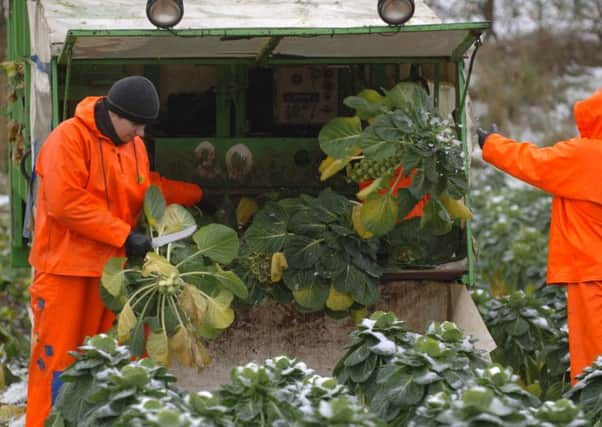Living Wage hit for fruit and vegetable growers


NFU Scotland is calling on the retail sector to acknowledge its responsibility by recognising the higher wage bills faced by Scottish growers through the price they pay for Scottish potatoes, vegetables and soft fruit.
At a meeting last week specialist growers highlighted that they face having to pay the National Living Wage to all workers because Scotland has retained the Scottish Agricultural Wages Board (SAWB). By comparison, in England, the wages board has been abolished and the living wage would only apply to those over 25 years of age.
Advertisement
Hide AdAdvertisement
Hide AdThe SAWB is currently under review and in its recent submission NFUS has said that the board is no longer required given that we now have a National Minimum Wage (NMW) and a National Living Wage for those over 25. In addition, other legislation such as the Gangmaster Licencing Act, Agency Workers Regulation and the EU Working Time Directive provide extensive protection to employees.
NFU Scotland chief executive Scott Walker said: “Growers in Scotland compete directly with farm businesses in England as well as the rest of Europe and wages can represent more than 40% of the operating costs of such a business. The living wage will see any profit margin eliminated unless Scottish growers can recover the extra cost they face through the products they sell. If this doesn’t happen, then there will be less Scottish fruit and vegetables produced.
“There is justifiable frustration at a Scottish farming business level given that they now have to give consideration to a national minimum wage, a Scottish agricultural minimum wage rate and the new UK living wage rate requirements.
“Farmers and growers know that to attract skilled and dedicated workers – whether permanent or seasonal - they need to pay a wage that is competitive. The dysfunctional supply chain, and the price pressure being heaped on all farm businesses at this time makes attracting and keeping staff a genuine challenge as the rewards for the risk involved in farming are simply not there.
Advertisement
Hide AdAdvertisement
Hide Ad“The supply chain needs to recognise that what they pay for farm produce is the biggest determinant of what a business can afford to pay its staff and any sensible sourcing commitment from retailers needs to address this issue.
“Scottish Government also needs to declutter the employment legislation around farming. We simply want to see agricultural businesses treated in the same way as all other employers. The existence of SAWB places Scotland at a serious competitive disadvantage.”